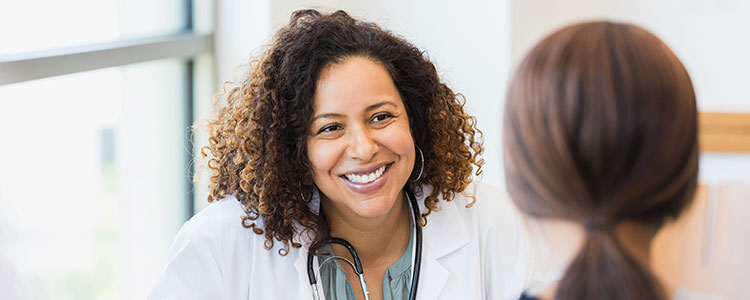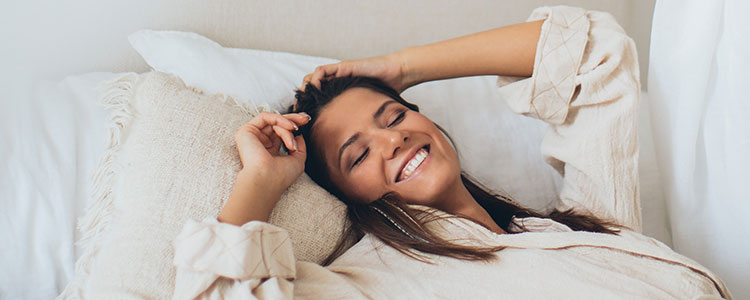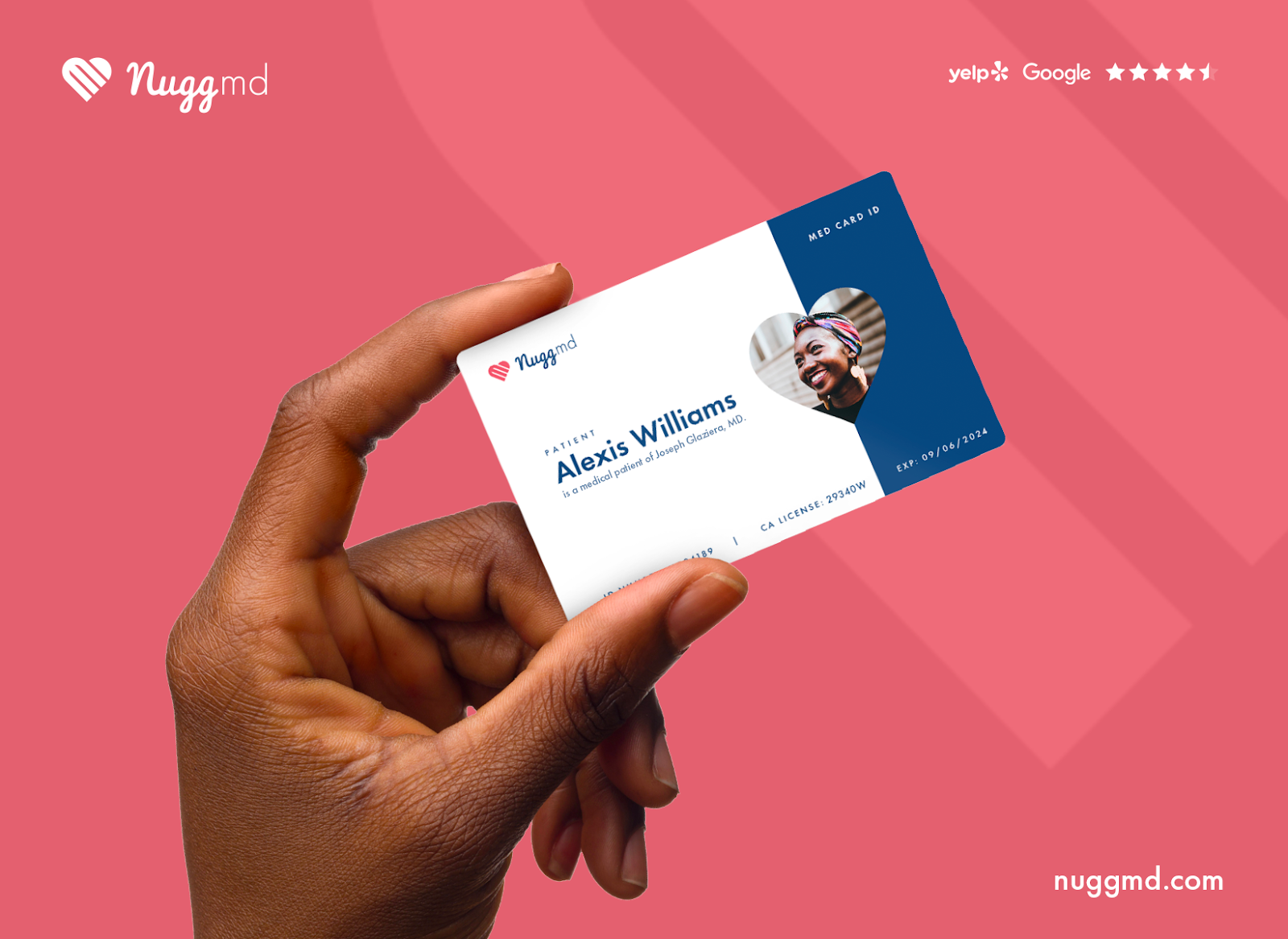
Occasional anxiety is a part of life for many individuals. It can help draw attention to situations that are unsafe or where additional preparation is needed. For someone with an anxiety disorder, however, feelings of worry and fear are extreme, persistent, and excessive. Anxiety disorders may involve repeated episodes of intense fear, called panic attacks.
Anxiety disorder is often thought to be an invention of modern times. First described by ancient Greek and Latin physicians as a medical disorder, the term “anxiety” temporarily disappeared from literature, but symptoms continued to be described under different names and treatments until the 19th century.1
Anxiety is the most common type of mental illness in the United States, and anxiety disorders affect 19.1% of adults every year. Social anxiety disorder (SAD) is one of the most common forms of anxiety, affecting 7.1% of adults in the US. While feelings of anxiety can affect someone’s mood, anxiety is not itself a mood disorder (although they can coexist).
In September 2022, the U.S. Preventive Services Task Force recommended screening all adults under age 65 for anxiety. This is the first time anxiety screenings have been recommended for people without symptoms, and most likely reflects the growing prevalence of anxiety amid a turbulent time in history.2
What Causes Anxiety?
The causes of anxiety disorders are not yet fully understood, but experts think that both genetic and environmental factors can add to the risk of development. Some general risk factors can be identified, though this is not an exhaustive list:
- Medical causes: Sometimes anxiety is caused by an underlying health issue or as a side effect of medication.
- Other mental health disorders: Anxiety often occurs alongside other mental health conditions, like depression.
- Trauma: Children and adults who experience trauma have a higher risk of developing an anxiety disorder at some point in life.
- Stress: Stress due to life situations – like a move, illness or a buildup of seemingly small events – can cause anxiety.
- Personality: Certain personality types are more predisposed to anxiety disorders.
- Family history: Anxiety disorder can run in families.
- Drugs or alcohol: Misuse of drugs and alcohol can trigger anxiety or make it worse. Withdrawal can also cause symptoms of anxiety.
Anxiety Signs & Symptoms
Unlike stress, the symptoms of anxiety do not go away, even in absence of a stressor. If you have anxiety, you may experience one or more of the following common symptoms:
- Feeling restless, nervous, or tense
- A sense of impending panic, doom, or danger
- Increased heart rate
- Hyperventilation
- Sweating
- Trembling
- Feeling weak or tired
- Difficulty with concentration
- Difficulty controlling feelings of worry
- Sleep disruption
- Gastrointestinal problems
- Urge to avoid any potential anxiety triggers
Anxiety disorder encapsulates several subtypes, all of which are highly treatable and have their own specific signs and symptoms.
Subtypes of anxiety disorder include:
- Agoraphobia
- Generalized anxiety disorder (GAD)
- Panic disorder
- Selective mutism
- Social anxiety disorder (SAD)
- Specific phobias
- Obsessive-compulsive disorder (OCD)
- Post-traumatic stress disorder (PTSD)
Can Cannabis Help Alleviate Anxiety Symptoms?

The endocannabinoid system (ECS) modulates a large number of our essential bodily functions, including our responses to fear, anxiety, and stress.3 With this in mind, it’s not a surprise that a large number of people use cannabis for anxiety. In a survey of 27,169 people in the US and Canada, 27.1% reported using cannabis for medical reasons. Among these test subjects, 52% reported using cannabis for anxiety.
With so many people self-medicating with cannabis, it’s important to understand the science behind the disorder, and whether cannabis actually has any therapeutic potential for anxiety disorder or its symptoms.
- A comprehensive review published in 2020 found that people are overwhelmingly using marijuana for anxiety, sometimes in place of their prescribed medication. Most of the studies reported an alleviation of anxiety symptoms. Most notably, an Australian study of 1,748 people reported that 71-92% of participants reported an improvement in symptoms.4 Limitations of this review include self-reported results and inconsistent methods of study among each report.
- A 2004 clinical trial first showed evidence of THC’s potentially anxiety-inducing effects, and another trial of frequent cannabis users supported these results by showing a correlation between anxiety symptoms and cannabis dosage: more frequent cannabis users had less significant symptoms than the control group.5
- In a 2011 clinical trial, people with SAD and a healthy control group were given either CBD or a placebo before a simulated public speaking test. CBD effectively reduced the anxiety, cognitive impairment, and discomfort of the participants with an anxiety disorder, which was a similar response to the control group.6 Another trial found that when administered with THC, CBD appeared to lessen the anxiety-inducing effect of the THC.7
- Studies have shown that the potential effects of CBD and THC are dose-dependent and may also be influenced by biological differences, like sex.8,9
- A 2015 review shows preclinical evidence that CBD exerts anxiolytic effects at moderate doses. More research is needed on consistent, long-term use of CBD, but these results have implications for future treatment of anxiety disorders like GAD, SAD, panic disorder, OCD, and PTSD.10
Current treatments for anxiety come with issues of efficacy and safety. While medical cannabis may have the potential as an alternative or add-on treatment, more study is needed to determine a standardized method of delivery and dosage.11 The effects of cannabis on anxiety also appear to be influenced by the frequency of cannabis use and the sex of the user - both factors must be further studied. Lastly, anxiety disorder includes a host of various conditions so the specific effects of cannabis must be uncovered for each condition.
Although many people report using medical marijuana for anxiety, studies have shown that adverse effects are also possible. In higher doses, cannabis may trigger anxiety symptoms (though there is some evidence that these adverse effects may be reduced within more frequent cannabis users or the addition of CBD to mediate some negative side effects of THC). Medical cannabis may also interact with certain medications, like SSRIs, and it is important to consult with a doctor before use.
Low to medium doses of CBD appear to show the greatest potential for alleviating feelings of anxiety. Look for products that are easy to dose, like tinctures, capsules, edibles, and teas. Smoking cannabis can make it harder to control how much you are consuming, although vapes with therapeutic ratios of cannabinoids may be a good alternative. Medical cannabis containing CBD-rich ratios like 2:1, 4:1, 10:1, and 20:1 are a good place to start.
Legality and Doctor’s Recommendation
To determine if your state considers anxiety to be a qualifying condition for medical marijuana, check out our Laws & Regulations section for the medical cannabis rules for your state.
If you find that your state recognizes anxiety or its symptoms as a qualifying medical condition, you can seek a doctor’s recommendation to get your medical cannabis card in your state.
How NuggMD Can Help

NuggMD is the nation's leading medical marijuana technology platform, serving patients in 20 states and growing. We’ve connected over 1,000,000 patients with their new medical marijuana doctors face-to-face via our state-of-the-art telemedicine platform.
We believe that every human being has the right to explore the benefits of medical cannabis and are fully committed to helping each patient explore all of their options in their journey to wellness. For further information on whether you qualify for medical cannabis, select your state.
Resources
1. Crocq, Marc-Antoine. 2015. “A History of Anxiety: From Hippocrates to DSM.” Dialogues in Clinical Neuroscience 17 (3): 319–25. https://www.ncbi.nlm.nih.gov/pmc/articles/PMC4610616/.
2. World Health Organization. 2022. “Mental Health and COVID-19: Early Evidence of the Pandemic’s Impact: Scientific Brief, 2 March 2022.” Www.who.int. March 2, 2022. https://www.who.int/publications/i/item/WHO-2019-nCoV-Sci_Brief-Mental_health-2022.1.
3. Lutz, Beat, Giovanni Marsicano, Rafael Maldonado, and Cecilia J. Hillard. 2015. “The Endocannabinoid System in Guarding against Fear, Anxiety and Stress.” Nature Reviews Neuroscience 16 (12): 705–18. https://doi.org/10.1038/nrn4036.
4. Lintzeris, Nicholas, Jessica Driels, Natalie Elias, Jonathon C Arnold, Iain S McGregor, and David J Allsop. 2018. “Medicinal Cannabis in Australia, 2016: The Cannabis as Medicine Survey (CAMS‐16).” Medical Journal of Australia 209 (5): 211–16. https://doi.org/10.5694/mja17.01247.
5. D’Souza, Deepak Cyril, Mohini Ranganathan, Gabriel Braley, Ralitza Gueorguieva, Zoran Zimolo, Thomas Cooper, Edward Perry, and John Krystal. 2008. “Blunted Psychotomimetic and Amnestic Effects of Δ-9-Tetrahydrocannabinol in Frequent Users of Cannabis.” Neuropsychopharmacology 33 (10): 2505–16. https://doi.org/10.1038/sj.npp.1301643.
6. Bergamaschi, Mateus M, Regina Helena Costa Queiroz, Marcos Hortes Nisihara Chagas, Danielle Chaves Gomes de Oliveira, Bruno Spinosa De Martinis, Flávio Kapczinski, João Quevedo, et al. 2011. “Cannabidiol Reduces the Anxiety Induced by Simulated Public Speaking in Treatment-Naïve Social Phobia Patients.” Neuropsychopharmacology 36 (6): 1219–26. https://doi.org/10.1038/npp.2011.6.
7. Zuardi, A. W., I. Shirakawa, E. Finkelfarb, and I. G. Karniol. 1982. “Action of Cannabidiol on the Anxiety and Other Effects Produced by ?9-THC in Normal Subjects.” Psychopharmacology 76 (3): 245–50. https://doi.org/10.1007/bf00432554.
8. Solowij, Nadia, Samantha Broyd, Lisa-marie Greenwood, Hendrika van Hell, Dave Martelozzo, Kuna Rueb, Juanita Todd, et al. 2019. “A Randomised Controlled Trial of Vaporised Δ9-Tetrahydrocannabinol and Cannabidiol Alone and in Combination in Frequent and Infrequent Cannabis Users: Acute Intoxication Effects.” European Archives of Psychiatry and Clinical Neuroscience 269 (1): 17–35. https://doi.org/10.1007/s00406-019-00978-2.
9. Cuttler, Carrie, Laurie K. Mischley, and Michelle Sexton. 2016. “Sex Differences in Cannabis Use and Effects: A Cross-Sectional Survey of Cannabis Users.” Cannabis and Cannabinoid Research 1 (1): 166–75. https://doi.org/10.1089/can.2016.0010.
10. Blessing, Esther M., Maria M. Steenkamp, Jorge Manzanares, and Charles R. Marmar. 2015. “Cannabidiol as a Potential Treatment for Anxiety Disorders.” Neurotherapeutics 12 (4): 825–36. https://doi.org/10.1007/s13311-015-0387-1.
11. Stack, Sophie K., Nial J. Wheate, and Elise A. Schubert. 2022. “Medicinal Cannabis for the Treatment of Anxiety Disorders: A Narrative Review.” Current Treatment Options in Psychiatry, April. https://doi.org/10.1007/s40501-022-00260-8.
The information in this article and any included images or charts are for educational purposes only. This information is neither a substitute for, nor does it replace, professional legal advice or medical advice, diagnosis, or treatment. If you have any concerns or questions about laws, regulations, or your health, you should always consult with an attorney, physician or other licensed professional.

